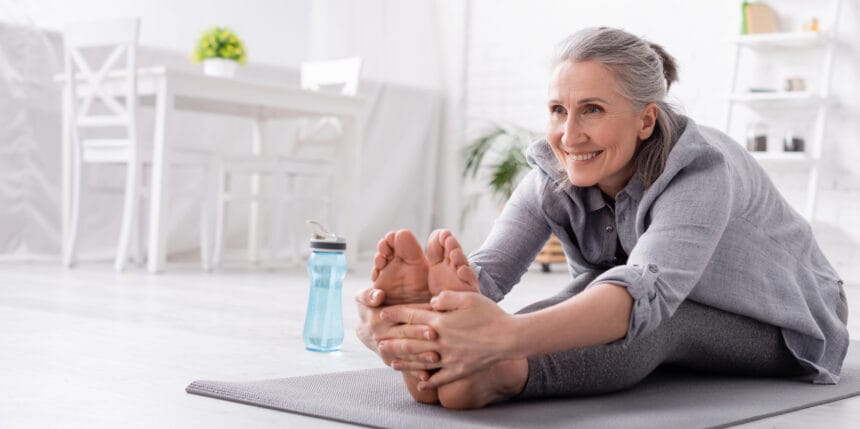Ever walked into a room and forgotten why? Or struggled to recall a name that used to come easily? If you’re over 60, you might wonder if this is just aging or something more. The good news? Your brain can stay sharp and adaptable—with the right habits.
At BeWell Alert, we’ve collected valuable insights and simple tips on brain health to help you keep your mind agile and feel secure as you age.
How Your Brain Adapts Over Time
Ever notice that it takes a little longer to recall a name or juggle multiple tasks as you get older? It might seem like your brain is slowing down, but really it’s finding new ways to work smarter.
Research out of Cambridge shows that as we age, our brains don’t just give up—they adapt. Older adults often use both sides of their brain to complete tasks that younger folks might handle with just one. This “compensatory scaffolding” means that if one part of the brain isn’t working as fast, another part picks up the slack.
Let’s break it down:
- Frontal Cortex: This area, which helps with problem-solving and abstract thinking, ramps up its activity to make up for any cognitive hiccups.
- Multiple Demand Network: Although the network that tackles complex tasks can weaken with age, the brain recruits extra support from other areas.
- Cross-Brain Communication: As we get older, different parts of the brain start working together even more closely to keep memory and focus sharp.
- Cuneus: This part helps improve visual processing and concentration, making it easier to analyze information and remember details.
But it’s not just about aging. A Stanford Medicine study that looked at blood markers from over 5,600 adults found that our organs—yes, even our brains—don’t all age at the same rate. Some people show signs of faster aging in their brains, which can make them more prone to cognitive decline. The silver lining? Early detection means you have a chance to step in and take action.
In the end, why some people stay sharp while others struggle often comes down to lifestyle choices. Just like muscles, your brain thrives on a good workout—whether that’s learning something new, socializing, or tackling challenging puzzles. By keeping your brain engaged every day, you can help it stay strong and independent, no matter your age.
Play Your Way to a Sharper Mind
Games aren’t just for fun—they’re a workout for your brain. Research shows that brain-training apps and strategy games can improve memory, decision-making, and focus, especially for adults over 60. Whether you enjoy solving puzzles, testing your trivia knowledge, or playing classic games, these online options can keep your mind engaged while you have fun.

Boosting Brain Health Through Movement
Staying active is one of the most effective ways to keep both your body and brain in top shape as you age. Regular movement does more than just improve your physical health; it’s also a powerful tool for boosting cognitive function, memory, and mental clarity. Whether it’s a walk in the park, lifting weights, or practicing tai chi, different types of physical activity can contribute to better brain health in unique ways.
To make things easier, we’ve highlighted the key types of physical activity for brain health. Take a look at the graphic below to see how you can incorporate these activities into your daily routine and keep your mind sharp as you age.

What If I’m Afraid to Be Active
It’s okay to have concerns about becoming more active as you age. You might wonder, “What if I fall? What if something goes wrong?” These concerns are common, but the truth is, staying active is one of the best ways to maintain your independence and keep your brain sharp. The key is to take it one step at a time, starting with activities that feel comfortable for you.
If you’re worried about safety while being active, an alert system can provide peace of mind. For example, BeWell Alert offers devices like the BeWell Mini Lightweight Mobile. It’s small, discreet, and can go with you wherever you are. Whether you’re at home or out for a walk, the system ensures that help is just a button press away. If you happen to fall, the automatic fall detection feature can immediately send help, so you can focus on enjoying your activities without worrying about what might happen.
For those who want to stay active but also track their physical progress, the Active Alert Smartwatch is another great option. It’s not just a stylish accessory—it tracks your steps, heart rate, and other health data. This way, you can monitor your activity levels and make sure you’re staying on track with your fitness goals. Plus, knowing that an alert system is in place offers extra confidence to take that first step towards a more active lifestyle.
By using an alert system, you’re giving yourself the added security to explore a range of activities, from walking and dancing to trying out tai chi or joining fitness classes. These small actions can gradually build your confidence and strength, allowing you to embrace a more active and fulfilling lifestyle. The most important thing is to start slow, listen to your body, and know that the support you need is there when you need it.










